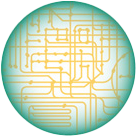DOE Performance Metrics
Every year BER’s Biological Systems Science Division (BSSD) reports on various aspects of its basic science mission as part of DOE’s performance management process. Listed below are several reports offered by year from various BSSD-funded projects highlighting recent basic research results relevant towards achieving BER’s long-term performance goals. Individual projects charged with completing these tasks produce quarterly reports on the requested topic that show progress toward the targeted goal for that year and ultimately toward the Overall Goal for BSSD.
Overall Goal: BER Predictive Understanding
Advance an iterative systems biology approach to the understanding and manipulation of plant and microbial genomes as a basis for biofuels development and predictive knowledge of carbon and nutrient cycling in the environment.
| Year | Project and Goal | Quarterly Reports | Project Website |
|---|---|---|---|
| 2025 | DOE Systems Biology Knowledgebase (KBase): Develop advanced approaches to genomic data analysis for use on the KBase open access platform including AI/ML.
| Q1 Report Q2 Report Q3 Report | Project Website |
| 2024 | The National Microbiome Data Collaborative: Approaches to assemble a centralized microbiome data collection to understand the functioning of microbiomes relevant to BER’s bioenergy and environmental research goals.
| Q1 Report Q2 Report Q3 Report Q4 Report 2024 Summary | Project Website |
| 2023 | PNNL Secure Biosystems Design SFA: Develop genomic approaches to securely design organisms with targeted beneficial functions for bioenergy and bioeconomy applications.
| Q1 Report Q2 Report Q3 Report Q4 Report 2023 Summary | Not available |
| 2022 | LBNL ENIGMA SFA: Develop new technologies for assessing microbial ecological processes in environmental samples. |
Q1 Report Q2 Report Q3 Report Q4 Report 2022 Summary | Project Website |
| 2021 | LLNL Microbes Persist Soil Microbiome SFA: Develop new omics-based techniques to understand microbiome function in environmental samples. | Q1 Report Q2 Report Q3 Report Q4 Report 2021 Summary | Project Website |
| 2020 | ORNL Center for Bioenergy Innovation (CBI): Report on genomic science-based advances and testing of new plant feedstocks for bioenergy purposes. | Q1 Report Q2 Report Q3 Report Q4 Report 2020 Summary | Project Website |
| 2019 | LANL Terrestrial Microbial Carbon Cycling SFA: Develop metagenomics approaches to assess the functioning of microbial communities in the environment. (See DOE Performance Metrics tab.) | Q1 Report Q2 Report Q3 Report Q4 Report 2019 Summary | Not available |
| 2018 | ORNL Plant-Microbe Interfaces SFA: Using genomics-based techniques, develop an approach to explore the functioning of plant-microbe interactions. | Q1 Report Q2 Report Q3 Report Q4 Report 2018 Summary | Project Website |
| 2017 | DOE Systems Biology Knowledgebase (KBase): Develop improved open access platforms for computational analysis of large genomic datasets. | Q1 Report Q2 Report Q3 Report Q4 Report 2017 Summary | Project Website |
| 2016 | Joint BioEnergy Institute (JBEI): Develop an improved metabolic engineering method for modifying microorganisms for biofuel production from cellulosic sugars. | Q1 Report Q2 Report Q3 Report Q4 Report 2016 Report | Project Website |
| 2015 | DOE Joint Genome Institute (JGI): Develop one new computationally enabled approach to analyze complex genomic datasets. | Q1 Report Q2 Report Q3 Report Q4 Report 2015 Summary | Project Website |
